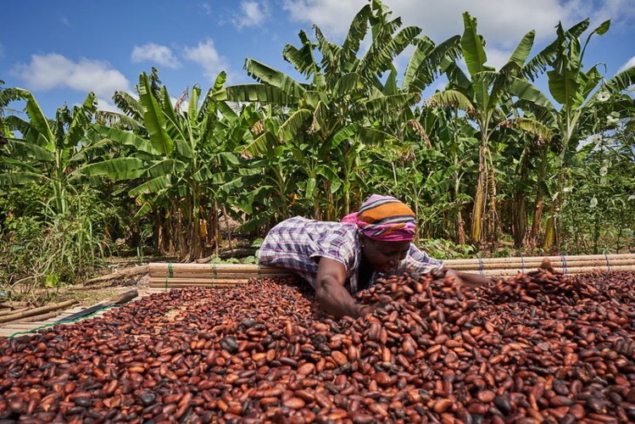
Audio By Carbonatix
A policy and advocacy think tank, Tsa-Ke-Mo is calling for stronger public policies to encourage value-addition to cocoa produced in Ghana and Cote D’Ivoire.
The group which is geared at promoting value addition and youth job creation from natural and agricultural resources said it is rather disappointing that Africa which produces 75% of the world’s cocoa only enjoys 2% of the world’s $100billion chocolate industry.
According to them, though there have been some indications by governments to address the huge disparity identified, not much has been realized due to a lack of strong policies and commitments.
An implementation of these policies they say will generate jobs and employment for Africa’s energetic youth population.
The Tsa-Ke-Mo, therefore, suggested some actionable policies to catalyse the growth of the cocoa value addition industry in Ghana and Cote D’Ivoire.
In a press statement to mark this year’s National Chocolate Week, Tsa-ke-mo called for 60% of cocoa produced in Ghana and Cote D’Ivoire to be retained and value added.
They stated that the 60% should be made more easily accessible to processing industries at affordable prices to ensure maximum participation of the country’s private sector.
They also called for the creation of a national fund for cocoa value addition capacity building and financing for the youth of the respective countries using at least 20% of cocoa export revenue.
They further stated that to serve as an incentive for private organisations and individuals to join the drive towards higher value addition for cocoa, new cocoa processing companies should be exempted from paying taxes in the first five years, whereas old cocoa processing companies should have their taxes reduced.
Tsa-ke-mo urged the governments of Ghana and Cote D’Ivoire to put in place a free import duty regime for industrial machines and equipment for industries involved in cocoa processing or chocolate manufacturing.
Finally, increase funding for cocoa research and product development in the respective countries will go a long way to help.
The group is optimistic that, these initiatives will increase employment opportunities, contribute to a more sustainable economy, and grant the governments some bargaining power over finished products which will then generate greater revenue for the countries.
Latest Stories
-
Clean Air Fund sets 2026 targets, pushing gov’t toward funding, tougher laws and real health gains on air pollution
15 minutes -
New Year begins with 15.92% water and 9.86% electricity tariff hikes
31 minutes -
TUC, PURC call for calm amid power tariff concerns, assure public of stakeholder engagement
34 minutes -
New VAT is a game changer for Ghana’s revenue collection – GRA Boss
1 hour -
Adom FM’s Strictly Highlife comes off today at Palms Convention Centre
1 hour -
Relive the 90s: Joy FM’s 90’s Jam takes over this Friday
1 hour -
Relieve Ato Forson of Defence role to protect fiscal discipline – Franklin Cudjoe to Mahama
2 hours -
Ghana at a ‘critical crossroads’, must mentor youth in integrity – Duffuor
3 hours -
Foreign Affairs Minister completes rollout of Passport Application Centres in all regional capitals
3 hours -
Deputy Foreign Affairs Minister commissions Passport Application Centre in Goaso
3 hours -
Choose people and planet over war – UN Secretary-General’s New Year message to world leaders
4 hours -
Police nab suspect over foiled gold robbery plot at Manso Abrense
4 hours -
Philadelphia Church camp meeting causes massive gridlock on Accra-Kumasi Highway
4 hours -
“Truth with danger saves generations” — Dr Duffuor urges integrity-led renewal in New Year message
4 hours -
Gold boosts Cedi to shatter 30-year losing streak
4 hours

